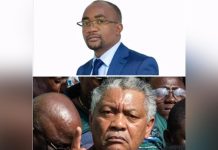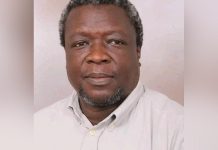Africa-Press – Zambia. Chapter One Foundation Executive Director Linda Kasonde says the ordinary crime of criminal defamation under Part III of the Penal Code still exists on Zambia’s statute books.
Ms Kasonde said the offence is punishable with a maximum of two years imprisonment or a fine or both. She said this shows that there is still work to be done to promote freedom of expression in Zambia.
Ms. Kasonde was commenting on President Hakainde Hichilema’s decision to repeal the law on criminal defamation of the President and death penalty. Ms. Kasonde said the country also look forward to the amendment of the Cyber Security and Cybercrimes Act which also contains sections that restrict freedom of expression.
She said the decision by President Hichilema is bold and that this is a victory for the protection of the right to life and the right to freedom of expression in Zambia for which the government must be commended. On the abolishment of death penalty, Ms. Kasonde said there are 195 countries in the world and only 55 actively implement the death penalty.
“Subsequently, this move is in line with global trends to abolish the death penalty. The death penalty is widely recognised as being an unjustifiable violation on the right to life, the right to human dignity, and the protection against cruel and degrading treatment.”
“As Mahatma Gandhi once said, an eye for an eye will just lead to more blindness in the world. No study has conclusively established that the death penalty acts as a deterrent to committing capital offences (offences that lead to the death penalty).”
“Regarding the abolishment of the crime of defamation of the President under section 69 of the Penal Code, this is a welcome move as I believe that this offence was an unjustifiable limitation on the right to freedom of expression in a modern democracy such as we have in Zambia,” she said.
“Democracy thrives on the marketplace of ideas. The more access we have to people’s freely expressed ideas, the more likely we will find solutions to the many challenges we face as a nation. If people are afraid to express themselves, we won’t get the best ideas.”
Meanwhile, Activists Isaac Mwanza has reviews that in 2017, President Edgar Lungu was asked about repealing Section 69 of the Penal Code, which provided for defamation of the President. His response was that while it might be attractive for activists, many lawyers knew that repealing Section 69 alone would not be enough to stop the punishment of those who defamed the President using the same Penal Code. The Penal Code still contains provisions that punish criminal defamation in addition to Section 69.
According to Mr Mwanza, the President said he had instructed the Minister of Justice to engage the Zambia Law Development Commission to conduct a comprehensive review of the Penal Code.
“Now, there is the great celebration over the repeal of Section 69, particularly among activists. However, this may be short-lived for those who believe they will no longer be charged with criminal defamation,” Mr Mwanza said.
This year alone, Parliament has made two piecemeal amendments to the Penal Code. While President Hichilema has made progress in changing the face of these laws, eventually bold decisions must be made to repeal and replace the entire Penal Code in order to allow democracy to thrive. The Penal Code was enacted during colonial times and does not support the growth of democratic governance in its current form.”
For More News And Analysis About Zambia Follow Africa-Press







